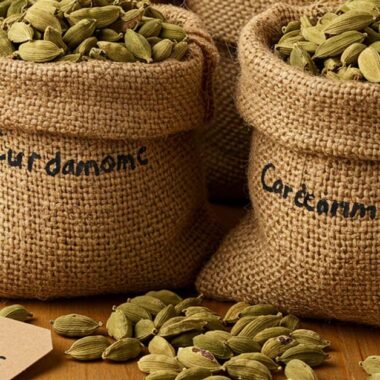Soil erosion is a major environmental issue, especially in hilly regions where heavy rainfall can wash away fertile topsoil. Cardamom plantations, when cultivated using sustainable methods, play a crucial role in stabilizing soil, preventing landslides, and maintaining biodiversity. Here’s how these spice farms contribute to soil conservation and sustainable agriculture.
🌱 1. Dense Root Systems Hold the Soil Together
✔️ Cardamom plants have fibrous root systems that bind the soil, preventing it from being washed away by rain.
✔️ The roots penetrate deep into the soil, improving soil structure and reducing the risk of landslides.
💡 Benefit: Less soil displacement means better nutrient retention, leading to higher crop yields over time.
🌳 2. Shade-Grown Cardamom Prevents Soil Degradation
✔️ Cardamom is traditionally grown under large forest trees, creating a natural canopy that reduces the impact of heavy rains.
✔️ The tree cover prevents direct raindrop impact, which is a major cause of soil erosion.
💡 Benefit: Maintaining tree cover protects topsoil from being washed away and reduces the risk of flash floods.
🍂 3. Leaf Litter & Organic Matter Enrich the Soil
✔️ Fallen leaves from shade trees and cardamom plants form a natural mulch, which protects the soil from erosion.
✔️ Decomposing organic matter enhances soil fertility and promotes the growth of beneficial microbes.
💡 Benefit: Moisture retention improves, making the soil more resilient to extreme weather conditions.
🚰 4. Improved Water Absorption & Reduced Runoff
✔️ Cardamom plantations help slow down water flow, allowing rainwater to percolate into the ground instead of running off.
✔️ The root systems act like sponges, preventing excess water from carrying away nutrients.
💡 Benefit: Helps recharge groundwater levels and prevents waterlogging or drought conditions.
🛤 5. Natural Terracing in Sloped Areas
✔️ In hilly regions, cardamom plantations are arranged in a way that mimics terracing, a technique that reduces soil erosion.
✔️ Step-like plantations slow down water movement and reduce sediment loss.
💡 Benefit: Prevents landslides and protects surrounding agricultural lands from erosion damage.
🌍 6. Eco-Friendly Alternative to Deforestation
✔️ Instead of clearing forests for intensive farming, cardamom can be cultivated within existing forests, preserving biodiversity.
✔️ The natural habitat remains intact, reducing the need for soil-damaging agricultural practices.
💡 Benefit: Sustainable farming ensures long-term productivity while maintaining environmental balance.
✅ Conclusion: Cardamom as a Natural Soil Protector
Cardamom plantations are more than just spice farms—they act as natural soil stabilizers that protect against erosion, improve water retention, and enhance soil fertility. By promoting sustainable farming practices, cardamom cultivation helps conserve the environment while ensuring long-term agricultural success.
🌿 Sustainable cardamom farming = A greener future! 🌍💚












